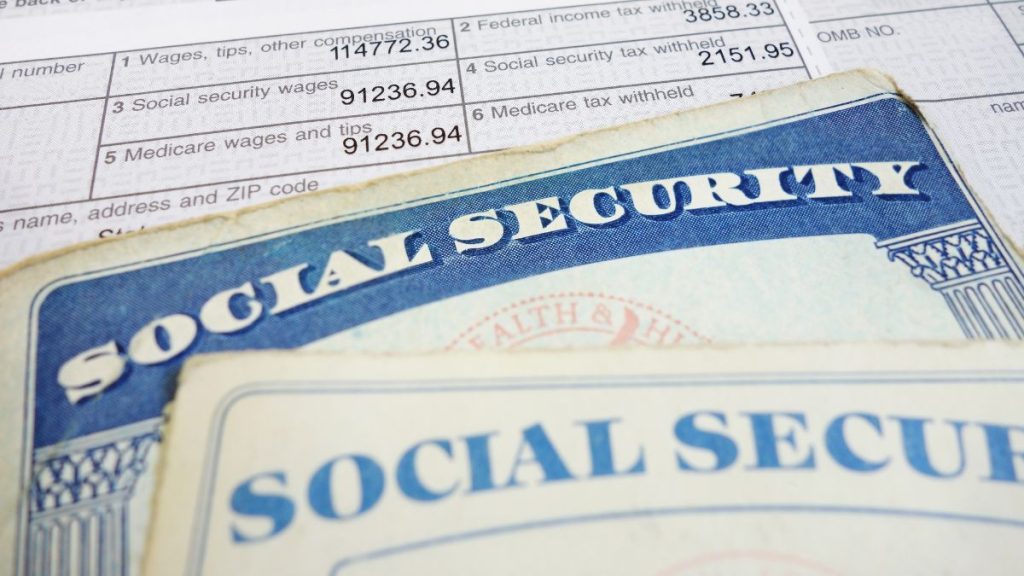Losing a spouse is a profound emotional challenge, and understanding Social Security benefits during this difficult time can be overwhelming. Widows and widowers may be eligible to collect survivor benefits based on their deceased spouse’s Social Security earnings.
This guide will provide comprehensive information on when and how a widow can collect these benefits, including eligibility requirements, benefit amounts, and key considerations for 2024.
Eligibility Criteria for Survivor Benefits

Age Requirements
Widows and widowers can start receiving survivor benefits as early as age 60. However, the benefits will be reduced if taken before the full retirement age. For disabled widows and widowers, benefits can begin as early as age 50. If you are caring for the deceased’s child who is under 16 or disabled, you can receive benefits at any age.
Marriage Duration Requirement
To be eligible for survivor benefits, the widow or widower must have been married to the deceased for at least nine months at the time of death. Exceptions to this rule include:
- Accidental Death: If the death was accidental, the nine-month requirement may be waived.
- Military Duty: If the deceased spouse was on active military duty and died in the line of duty, the duration of marriage requirement does not apply.
Divorce Considerations
Divorced widows and widowers may also be eligible for survivor benefits if the marriage lasted at least 10 years and they have not remarried before age 60 (or 50 if disabled). If remarried after age 60, they can still collect survivor benefits.
How Much Can a Widow Receive?

The amount a widow or widower can receive depends on several factors, including the deceased spouse’s earnings record and the age at which the survivor starts collecting benefits.
Benefit Percentages
| Age When Benefits Start | Percentage of Deceased’s Benefit |
|---|---|
| Full Retirement Age (66-67) | 100% |
| Age 60 to Full Retirement | 71.5% to 99% |
| Age 50-59 (Disabled) | 71.5% |
| Any Age (Caring for Child) | 75% |
Impact of Full Retirement Age
Survivor benefits are reduced if claimed before reaching the full retirement age (FRA), which varies depending on birth year. For those born in 1958, the FRA is 66 years and 4 months, and it gradually increases to 67 for those born in 1960 or later.
When Can You Start Collecting?
Early Benefits at Age 60
- Advantages: Provides financial support sooner.
- Disadvantages: Results in permanently reduced monthly benefits, potentially affecting long-term financial stability.
Full Retirement Age Benefits
- Advantages: You receive the full amount of the deceased spouse’s benefit, ensuring maximum financial support.
- Disadvantages: Requires waiting until the FRA, which may not be feasible for all.
Delayed Retirement Credits
Unlike retirement benefits, survivor benefits do not increase if you delay claiming them past the full retirement age. Therefore, there’s no financial advantage in waiting beyond this age to start collecting.
Working While Receiving Survivor Benefits
If you are under the full retirement age and earn over a certain threshold, your benefits may be reduced. For 2024, the earnings limit is approximately $21,240. For every $2 earned over this limit, $1 will be deducted from your benefits.
Impact on Benefits
Once you reach the full retirement age, Social Security will recalculate your benefits to credit the months in which benefits were reduced or withheld due to excess earnings.
Applying for Survivor Benefits
Required Documents
To apply for survivor benefits, you will need:
- Certified death certificate of the deceased spouse.
- Proof of marriage, such as a marriage certificate.
- Birth certificates of both the applicant and any qualifying children.
- Social Security numbers for the deceased, the applicant, and any dependent children.
- Deceased’s W-2 forms or self-employment tax returns for the most recent year.
Application Process
You can apply for survivor benefits by contacting the Social Security Administration (SSA) via phone at 1-800-772-1213 or visiting your local SSA office. It’s recommended to call ahead and schedule an appointment to avoid long waiting times.
Survivor Benefits for Divorced Spouses
Divorced spouses can also qualify for survivor benefits if:
- The marriage lasted at least 10 years.
- The applicant is currently unmarried or remarried after age 60 (50 if disabled).
Impact on Other Survivors
The survivor benefits paid to a divorced spouse do not affect the amount other survivors receive from the deceased’s Social Security record.
Impact of Remarriage on Survivor Benefits
Remarriage Before Age 60
If a widow or widower remarries before age 60 (or age 50 if disabled), they generally lose eligibility for survivor benefits based on their deceased spouse’s earnings record.
Remarriage After Age 60
Remarriage after age 60 (or 50 if disabled) does not affect eligibility for survivor benefits. You can continue receiving benefits without interruption.
Conclusion
Navigating Social Security survivor benefits can be complex, but understanding the eligibility criteria, benefit amounts, and application process can help you make informed decisions. Whether you are planning to apply soon or considering your options, this guide provides the essential information you need to maximize your benefits.
FAQs
1. Can I receive both my own Social Security and survivor benefits?
No, you cannot receive both benefits in full simultaneously. You will receive the higher of the two benefits.
2. Are survivor benefits taxable?
Yes, survivor benefits may be subject to federal income tax depending on your overall income. It’s best to consult a tax professional for specific guidance.
3. Can I switch from survivor benefits to my own retirement benefits later?
Yes, you can start with survivor benefits and switch to your own retirement benefits later, provided your retirement benefit amount is higher.
4. Do survivor benefits include Medicare?
No, but widows and widowers become eligible for Medicare at age 65 regardless of whether they receive survivor benefits.
5. Can I receive survivor benefits if I am already receiving spousal benefits?
Yes, if your survivor benefit amount is higher than your spousal benefit, Social Security will switch you to the higher survivor benefit.
















